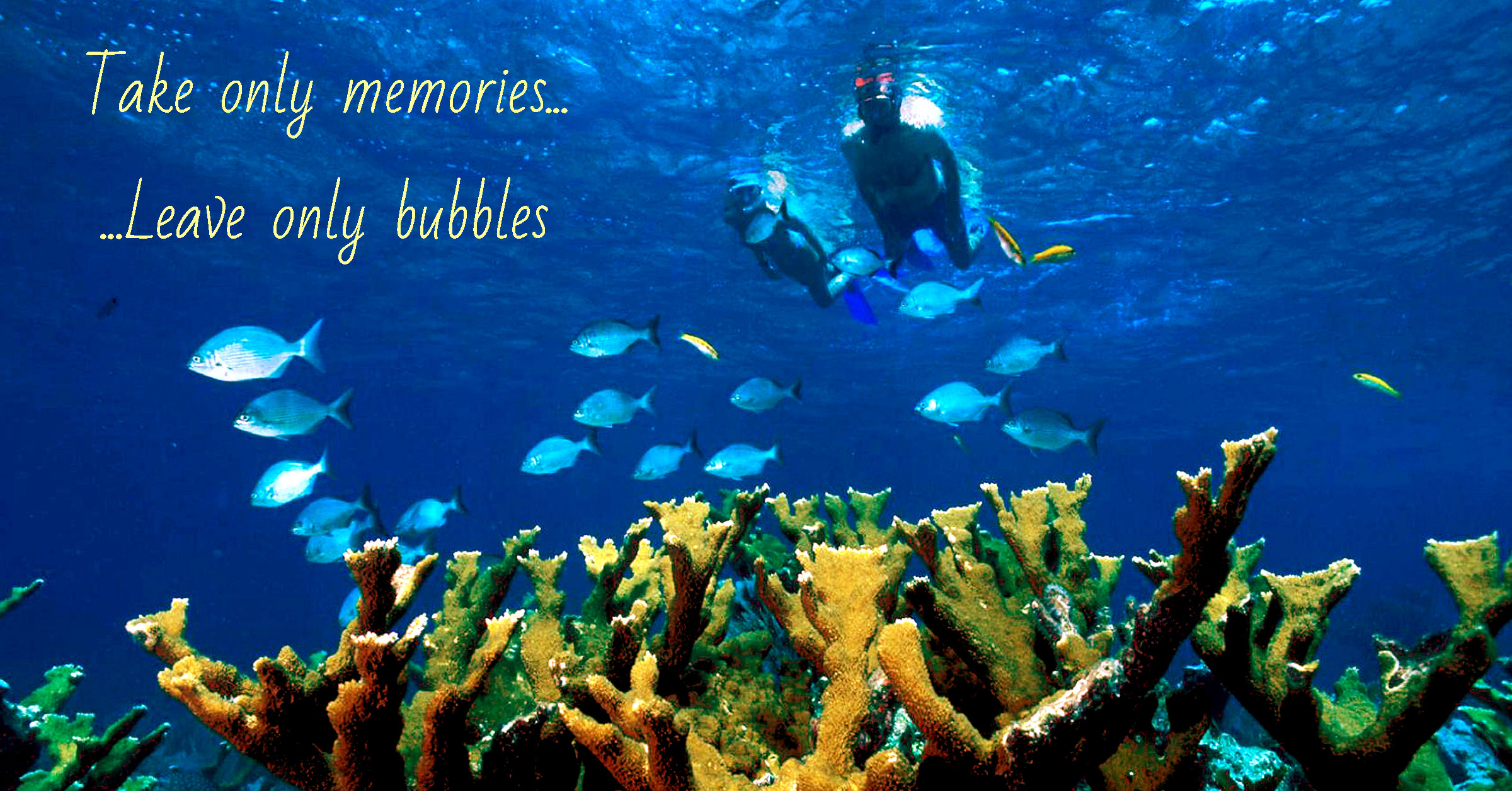What happens if you touch a coral
Coral polyps protect themselves (and their zooxanthellae partners) from infection with a mucus layer that is home to a rich microbiome, just like your own skin or gut! By touching coral, either directly or accidentally, you damage this protective layer.
Does touching coral hurt it
Corals are fragile animals. Be careful not to touch, kick or stand on the corals you see in the water because this may damage or even kill them.
Can corals hurt you
Watch for coral poisoning, which can occur if abrasions or cuts are extensive or from a particularly toxic species. Symptoms include a wound that heals poorly or continues to drain pus, swelling around the cut, swollen lymph glands, fever, chills and fatigue. If you have these symptoms, see a physician.
Is coral easy to break
Corals are very sensitive to being touched and can break easily, and fish are nervous around potential predators and feel more comfortable when they have space.
Can you touch coral with bare hands
Touching a coral with either your bare hand or a gloved a hand may damage it. Nonetheless, you should still wear gloves when diving around a coral reef to protect your hands from injury.
Does coral sting or burn
Irritating toxin is discharged into the skin from small structures on the coral — the mechanism is similar to jellyfish stings. In most cases, the burning sensation starts immediately after contact and increases for the first 10 minutes or so.
Can you touch coral with hands
Take only pictures and leave only bubbles while diving or snorkeling! Touching corals can remove their outer protective layer, spread infectious diseases, and expose them to foreign bacteria and oils on your fingers, which negatively impacts their health and can kill them.
Can coral burn skin
Fire corals are colonial marine cnidarians that can cause burning skin reactions. Fire-coral-related incidents are common among divers, especially those with poor buoyancy control.
Are corals fragile
Despite their many strengths, coral reefs are fragile.
How sensitive is coral
As described above, corals are sensitive to small changes in temperature, light, and a number of other environmental variables, responding by disassociating from the dinoflagellate symbionts that populate their tissues (i.e., bleaching).
What happens if you get coral in your skin
Because coral formations are rigid and sharp, injury can occur after accidental contact, leaving a small amount of animal protein and calcareous material in the wound. The small, harmless-appearing cut may quickly develop into an infected wound.
Why does coral hurt so much
Immediate stinging and cutaneous erythema after direct coral contact is caused by nematocyst release and can be managed with immediate wound cleansing and pain control.
How sensitive are corals
While coral reefs are long-lived and relatively resilient structures, they are still sensitive to disturbance such as excessive wave action, changes to the clarity of the water through excess sediment input resulting from damaging human activities, pollution and the effects of over- fishing.
Are corals hard or soft
Hard corals that form reefs are called hermatypic corals. Soft coral, also known as Alcyonacea and ahermatypic coral, do not produce a rigid calcium carbonate skeleton and do not form reefs, though they are present in a reef ecosystems.
Why is it bad to get cut by coral
Coral scrapes
Coral polyps, the soft living material that covers the surface of coral, can be easily torn away from the rigid and abrasive structure underneath if you touch, bump, or fall on coral. You may get a skin infection if small pieces of coral, other debris, and bacteria get inside the wound.
Is coral very sharp
Coral formations occur in tropical and subtropical waters. Because coral formations are rigid and sharp, injury can occur after accidental contact, leaving a small amount of animal protein and calcareous material in the wound. The small, harmless-appearing cut may quickly develop into an infected wound.
Do coral cuts never heal
Coral scrapes do have a tendency to become both chronically irritated and infected. Occasionally, coral scrapes and cuts will have trouble healing and break out in a chronic dermatitis or a weeping wound.
How sharp are corals
This is how coral skeletons grow. Even though the coral's inner skeleton is hard, the polyps are fragile. Even touching them with your fingers can damage them. In fact, as Jessica (SaltySci's coral expert) explained to me, the skeleton itself is not only hard, but very sharp – made of lots of little pointy bits.
Do coral cuts heal
Coral scrapes and cuts may take weeks or months to heal completely.
How sharp is coral
The edges are so sharp they cut with the swiftness of a scalpel. Sometimes a diver does not realize the cut has occurred until surfacing after the dive and discovering that telltale trickle of blood.



